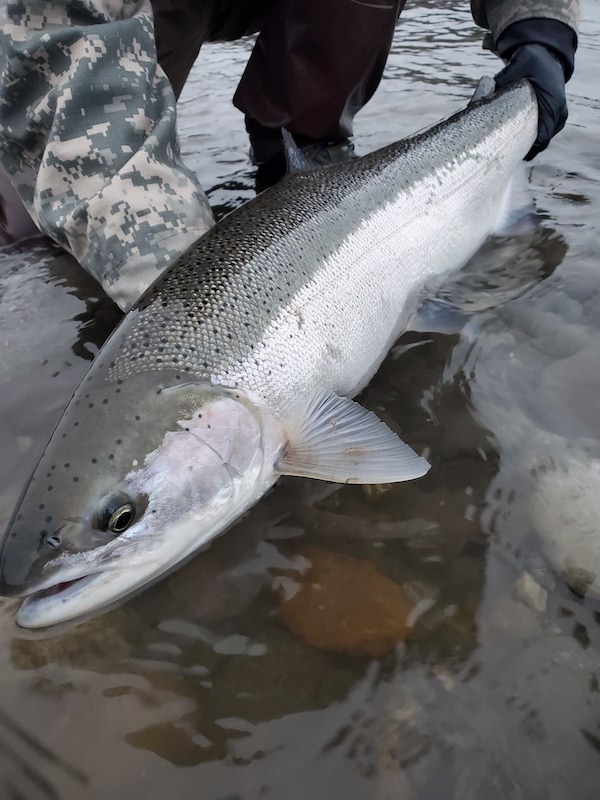
Clock Runs Out On Recovering America’s Wildlife Act
THE FOLLOWING IS A PRESS RELEASE FROM THE ASSOCIATION OF FISH AND WILDLIFE AGENCIES
The Association was disappointed to learn that in the final hours of negotiation, the Recovering America’s Wildlife Act was not included in the final language of the year end 2023 Omnibus package. The impasse had little to do with the contents of the legislative bill, which is widely supported, but the clock just ran out.

This bipartisan legislation would have dedicated $1.3 billion annually to state fish and wildlife agencies to implement their science-based Wildlife Action Plans and an additional $97.5 million for tribal fish and wildlife managers to conserve fish and wildlife on tribal lands and waters. This funding would have allowed state fish and wildlife agencies to implement proactive solutions to conserve over 12,000 species in greatest conservation need and prevent wildlife from becoming threatened or endangered without increasing taxes.
“The need for the Recovering America’s Wildlife Act is indisputable and the urgency never greater,” said Curt Melcher, Director of the Oregon Department of Fish and Wildlife and President of the Association of Fish & Wildlife Agencies. “The fact that this transformational legislation wasn’t included in the omnibus is not a reflection of the value of or support for the policy. Bold visions often take time to realize and we will be equally bold in our perseverance for this funding solution for our fish and wildlife and for future generations.”
“The Association is so appreciative of the unwavering effort and unprecedented commitment of Senator Heinrich, Senator Blunt, Congresswoman Dingell and the conservation community to getting Recovering America’s Wildlife Act enacted in the 117th Congress,” said Sara Parker Pauley, Director of the Missouri Department of Conservation and Past-President of the Association of Fish and Wildlife Agencies. “Though we didn’t cross the finish line this year, we are looking forward to continuing the conversation in the New Year.”
“The bipartisan Recovering America’s Wildlife Act is the most important wildlife legislation in half a century, and we must find a way for it to pass. The historic legislation will empower states, Tribes, and territories to ensure that the full diversity of fish, wildlife, and plants thrive for future generations,” said Collin O’Mara, president and CEO of the National Wildlife Federation. “Inaction is the ally of extinction, and we will continue to push tirelessly to ensure that the bill does not meet the same fate facing thousands of species of wildlife and plants.”
“It has been an epic year for Recovering America’s Wildlife Act (RAWA), with positive actions in both the United States House and Senate,” said Ron Regan, Executive Director of the Association of Fish and Wildlife Agencies. “Unfortunately, as close as we came to the goal line, it didn’t quite work out. As disappointing as that is, we will get back in the ring in the new year and continue our advocacy for sustained, broader funding on behalf of state fish and wildlife agencies. Our thanks to Senators Heinrich and Blunt and Representative Dingell for their vibrant, rich, and incredible leadership – truly remarkable – and to the many conservation partners across the country for their unflinching support for this legacy bill.” Regan added, “Given all the good will and support for RAWA in both chambers and among both parties, I sincerely hope the Congress will work quickly in the new year, right at the outset, to bring this legislation to fruition as speedily as possible.”
The Association would like to show our gratitude to our champions Senators Heinrich, Senator Blunt, Congresswoman Dingell, over 200 members of Congress who were co-sponsors of the Recovering America’s Wildlife Act, and our many conservation partners and friends who worked tirelessly to pass the bill. Recovering America’s Wildlife Act remains the single most impactful wildlife conservation bill in a generation and is supported by over 70% of Americans. Our current funding model can no longer keep up with the needs of the full array of fish and wildlife in this country, nearly a third of which are at increased risk of extinction. The Association will continue to work toward passage of a modern wildlife conservation funding bill in the New Year.
These critical efforts have been supported by the Alliance for America’s Fish & Wildlife, whose purpose is to create a 21st-century funding model for critically needed conservation of our nation’s most precious natural resources, our fish and wildlife. This effort was built upon the strong partnership created by the Blue Ribbon Panel on Sustaining America’s Diverse Fish & Wildlife Resources, consisting of members representing the outdoor recreation, retail and manufacturing sector, the energy and automotive industries, private landowners, educational institutions, sportsmen’s and other conservation organizations and state and federal fish and wildlife agencies.
